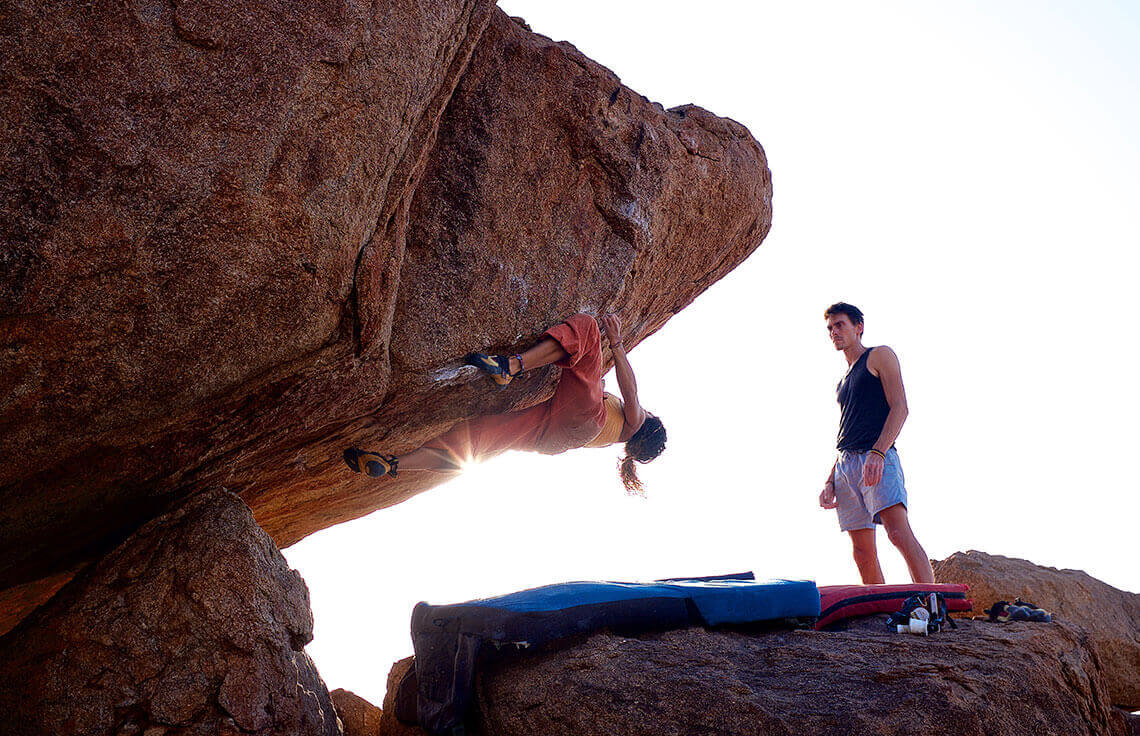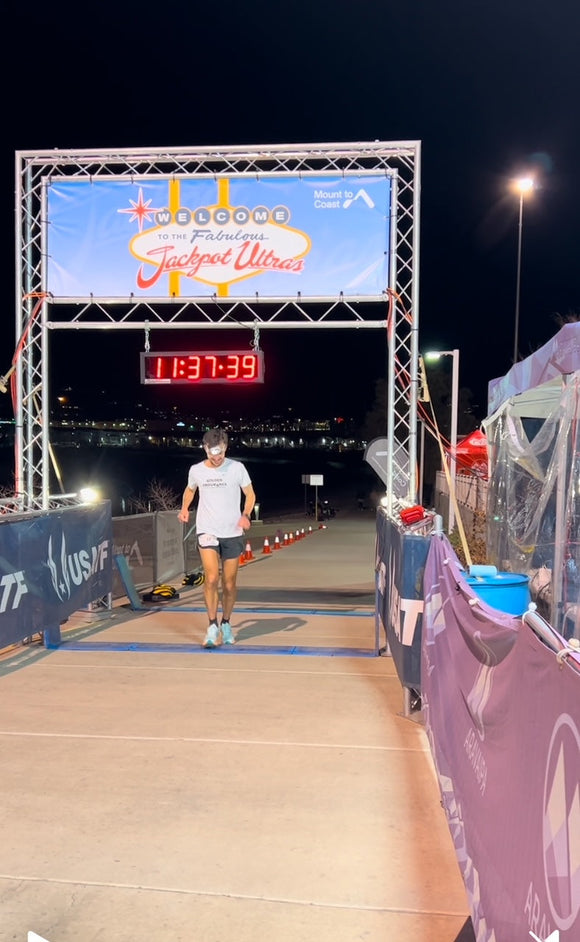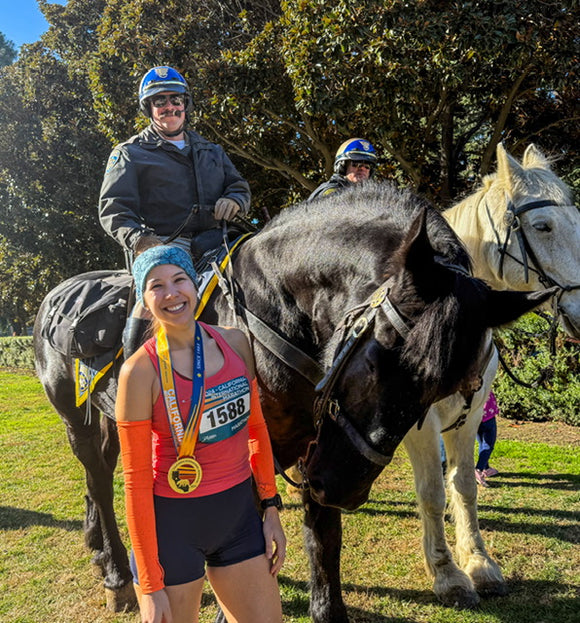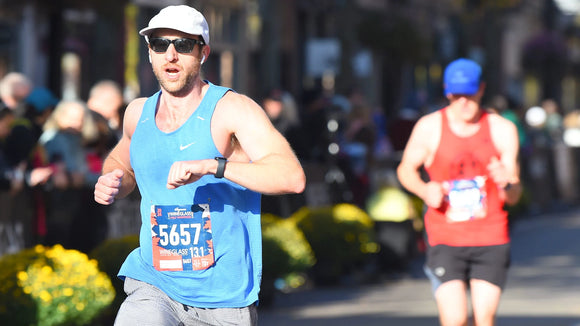For climbers, having the right hydration is as essential as your choice of climbing shoe. Climbing is a strenuous sport that requires endurance and focus; hydration replenishes the spent physical and mental capacity and makes all the difference between sending or slipping. Studies have shown that even mild dehydration (1% below your optimal hydration level) can result in poorer performance. [1] Even if you take breaks when top-roping or take a breath between attempts and routes while bouldering, hydration loss through sweat can cause you to be prematurely fatigued, particularly in hot or humid environments. [2]
However, you don’t have to bring gallons of water with you to stay hydrated. Hyper-hydrating the night before a particularly tough or long climb with Osmo PreLoad can help ensure that you start your climb hydrated, so you can focus more on your climb and drink to thirst as you go. Otherwise, bringing a bottle of water mixed with Active Hydration and drinking small sips every 10 minutes or so will help replace body water as quickly as you lose it, which in turn will fight fatigue and cramping (your legs and hands will thank you).
Another important consideration when choosing your hydration is your drink’s osmolality. Osmolality is a measure of how much solid is dissolved in the fluid, or how “dense” the fluid is. The osmolality of the fluid you drink must be equal to or lower than the osmolality of blood for your gut to absorb it. If not, the liquid will be kept in the stomach and body water will be drawn from the bloodstream to absorb it. Essentially, if the osmolality of your drink is too high, you’ll dehydrate yourself further—and you may get an uncomfortable “sloshing” feeling. Choosing a drink with the right osmolality is essential for proper hydration, as well as preventing gastric distress, which is the last thing you want to worry about on a climb.
Furthermore, what you consume after a climb is just as important as what you drink or eat during it. The three most important things to accomplish during recovery are 1) stopping the body’s exercise-induced catabolic (breakdown) response; 2) taking in high-quality protein to facilitate muscle repair; and 3) restoring the body’s glycogen stores. Our Recovery mix is made of a 2:1 protein to carbohydrates ratio with 30mg of caffeine. The protein shuts down the breakdown from exercise and enables muscle repair, while the carbs provide glycogen, helping to speed your recovery and rebuild your muscles.
Climbing is an intense sport that requires a lot of strength, endurance, and concentration. Hydrating effectively during your climb and recovering with the right nutrients afterward will help improve your performance and make your climb as enjoyable as it should be. No matter how tough a route you’re climbing, you should still feel as great as possible while doing it. Take care of your body and avoid cramping, fatigue, and injury by hydrating properly and getting the right nutrients during recovery.
[1] Bardis, C. N., Kavouras, S. A., Arnaoutis, G., Panagiotakos, D. B., & Sidossis, L. S. (2013). Mild dehydration and cycling performance during 5-kilometer hill climbing. Journal of athletic training, 48(6), 741-7.[2] Smith, Edward, Storey, Ryan and Ranchordas, Mayur (2017). Nutritional considerations for bouldering. International Journal of Sport Nutrition & Exercise Metabolism, 27 (4), 314-324.



